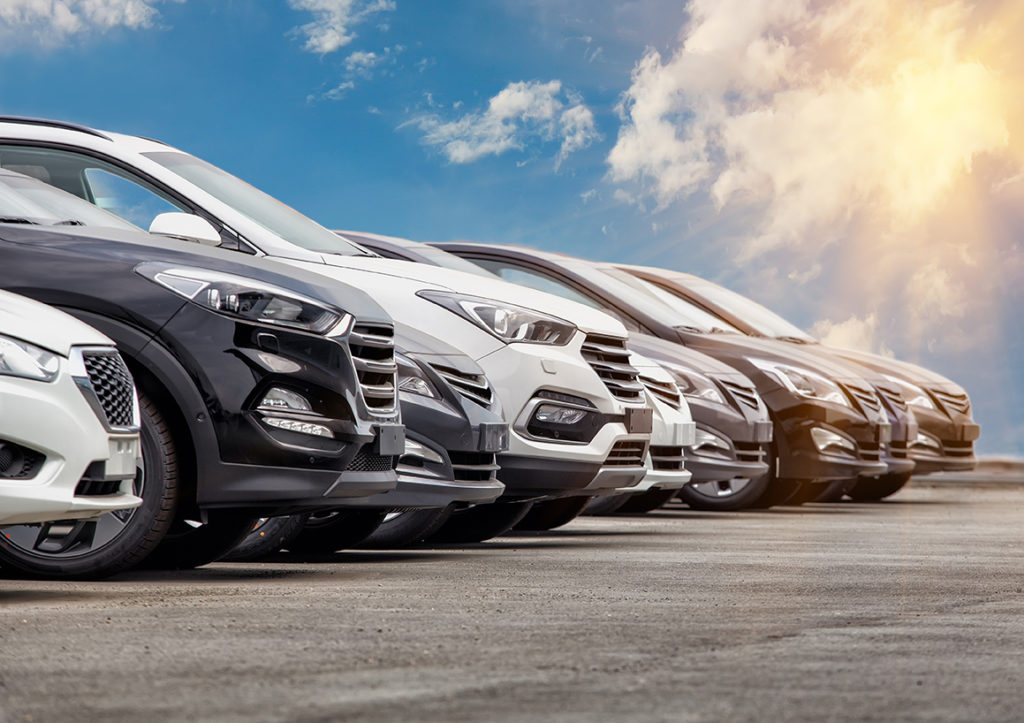2021 is officially the year of the used car. Here’s a rundown of the fastest-selling used cars and reasons why prices are still rising in the tail end of pandemic Britain.
Just as we thought used cars couldn’t be selling any better, they are doing just that. Used cars sales are now up 16.5 percent.
This is undoubtedly good news for dealers, but supply is becoming harder and harder to come by. Dealers in May 2021 only had an average of 42 cars in stock. In May 2019, they had an average of 67.
Despite stock shortages and rising used car prices in the wholesale market, prices for used cars actually dropped in May of this year. Prices at wholesale have become higher, but this hasn’t translated to higher prices for buyers on car dealer forecourts for a variety of reasons. It seems that dealers are slow to raise prices to match the wholesale prices they are paying for the stock.
This begs the question: how will this affect dealers? A higher wholesale price and a lower retail price simply equates to lower margins, which is not good for business. Many experts are urging dealers to reconsider their pricing structure.
What’s The Fastest-Selling Used Car?
These are the fastest-selling used cars, based on how long (on average) they stay on used car dealership lots before being sold.
| Vehicle | Average Days on Lot |
|---|---|
| 1. Vauxhall Mokka | 23 Days |
| 2. Jeep Compass | 23.8 Days |
| 3. Mercedes-Benz GLC | 24.6 Days |
| 4. Dacia Sandero Stepway | 24.9 Days |
| 5. Mercedes-Benz GLA Class | 25.4 Days |
| 6. Kia Sorento | 25.5 Days |
| 7. Volkswagen Touareg | 25.9 Days |
| 8. Mazda MX-5 | 26 Days |
| 9. Land Rover Discovery | 26.5 Days |
| 10. Range Rover Evoque | 27.2 Days |
Why Are Used Cars In Short Supply Right Now?
Used car prices are at the highest they have been in a generation, with the prices of some cars rising by thousands. Dealers are being told to push up prices, but there doesn’t seem to be a uniform trend in the raising or lowering of prices for used car showrooms.
So, why have wholesale prices increased? There are several reasons, most notable is the suspended production of new vehicles due to the pandemic. This is coupled with the increase in car and van purchases, making supplies of second-hand vehicles more in demand. As we’ve covered in previous months on this blog, the issue surrounding semiconductors in cars and vans has also had an extra detrimental effect on the production of new cars.
So, the biggest problem for most used car dealers isn’t getting customers to put their hands in their pockets, it’s getting enough supply to meet demand.
The source of the problem seems to be the de-fleet and prep supply chain, whose speed is hampered by the pandemic and social distancing. These difficulties have made the prices of used cars less reliable, with some dealers complaining of randomly hiked up prices for particular lots.
As mentioned above, dealers don’t seem ready to reflect wholesaler’s price increases just yet in their retail prices just yet. Maybe this is because dealers are enjoying a gold rush of buyers and so are more profitable-than-ever, even with smaller margins but higher stock turn over than they are used to.
In an article in Car Dealer Magazine, John Bowman outlined that a 50-car used car showroom would normally sell 400-450 vehicles a year. This year it will be closer to 600, a considerable increase.
Will Used Car Prices Drop In 2021?
Experts believe that online disruptors like Cinch and Cazoo will begin to see major changes when supply for used cars is harder to obtain. In times of lower supply, dealers are more likely to hold onto the stock to trade or send vehicles to auction.
The current international travel restrictions mean that rental companies aren’t replacing their fleets as often, meaning there isn’t the turnover as we usually see. Even without the pandemic, Brexit would likely have affected the used car market’s accessibility to rental fleets abroad.
A silver lining is that buyers purchasing new cars will see greater values for exchanges of their current vehicle in the near future, as the resale value of their car will likely be more significant.
Many industry experts are warning that the current used car ‘bubble’ will ‘burst’, leaving dealers stuck with expensive stock bought in a frenzy to fulfil demand. A smaller profit margin may seem OK with increased sales, but dealers could find themselves in hot water if demand dries up.
It remains to be seen what the combination of high demand and precarious supply will have on market prices and behaviour. The transition out of the pandemic and corresponding increase in international travel will likely also have an effect.
Plan Insurance can provide competitive quotes for car dealers insurance. Just submit our quick questionnaire to hear back from our professional insurance brokers.


